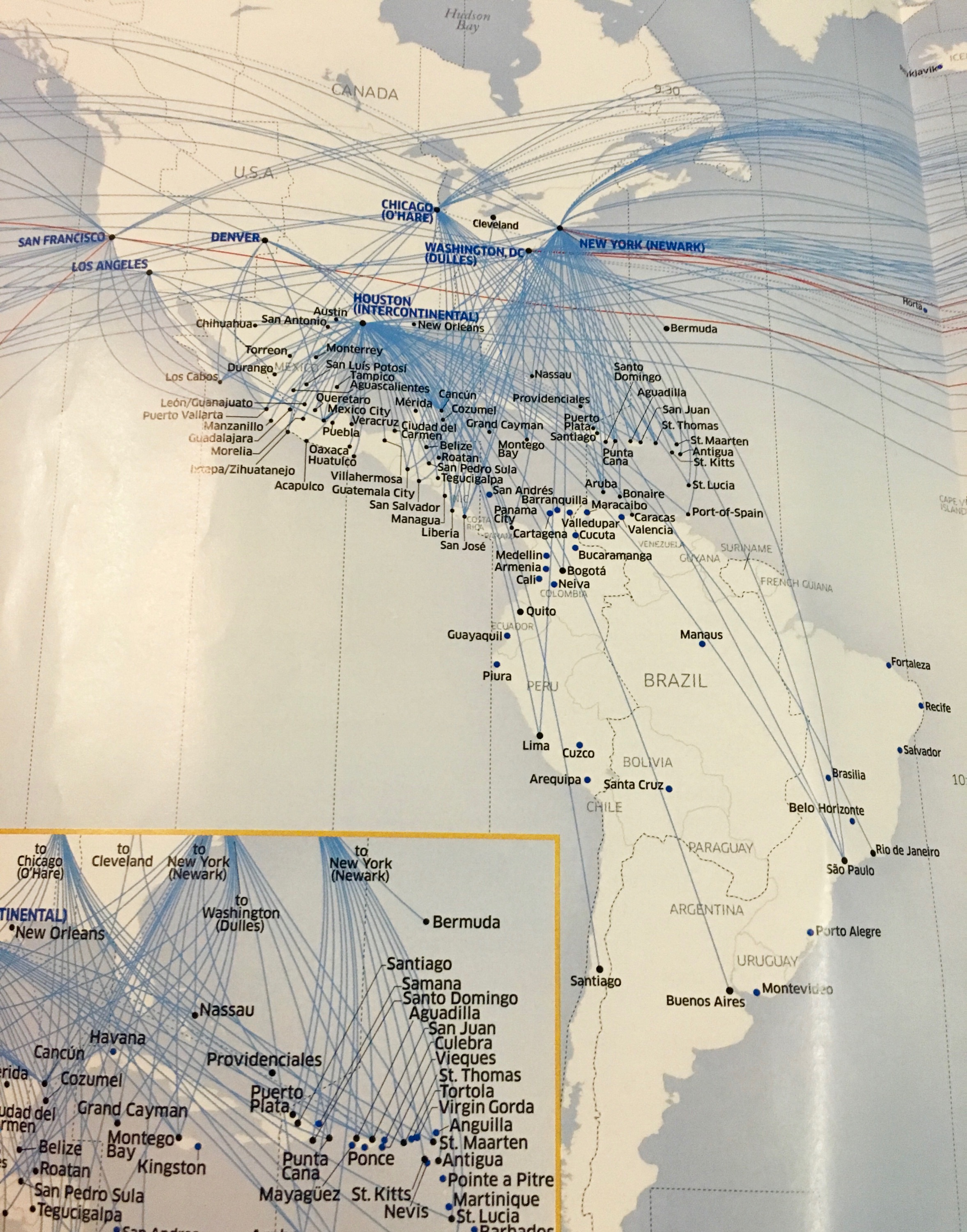10 International Travel Tips For Your Next Trip Abroad
/Sipping a cocktail on the beach in Uruguay, standing atop a glacier in Patagonia, seeing the City of Lights sparkle on a summer evening -- these are some of my favorite travel memories. While I hope you are making plans for your next international trip, before you toss that new bikini and flip-flops into your suitcase, make sure you take care of the practical stuff well in advance. Here are 10 of my international travel tips - honed from my visits to 25 countries and counting - to insure that your next trip abroad is a safe, relaxing and enjoyable one
Tip #1: Flights are often the first thing considered when planning an international trip. One helpful tool is Google Flights (https://www.google.com/flights/) it saves you the step of searching each airline individually and compares routes, prices, times, airlines, etc. to find the cheapest, most convenient, or preferred flight between any airports. Experts recommend buying tickets about four months before you plan to travel, according to USA Today. Airline ticket prices are cheapest mid-week afternoons, with the best single time and day to book a flight is 3 p.m. Eastern time on Tuesday. Travel during peak seasons - summer, Christmas and other public holidays - is most expensive.
Tip #2: Check that your passport is valid. For a new U.S. passport, allow 4-6 weeks for processing. You may need to get a visa before you travel to a foreign destination. (I needed a visa for a quick, week’s trip to Australia and got it in less than 24-hours!) Make copies of your passport, visas, credit cards, health insurance card, travel itinerary and airline tickets and give to a close relative or friend for safekeeping in case the original is lost or stolen. This information can help them contact you in case of an emergency. For more information on renewing your passport, visit https://travel.state.gov/content/passports/en/passports/renew.html.
Tip #3: Notify your bank and credit card companies of your travel, and check exchange rates. Understand the international service fees, and ask your bank about ATM service charges. You can often save money by using local ATMs at your destination instead of exchanging dollars for foreign currencies. For peace of mind, I get some local currency upon arrival, at the airport ATM, for tips, cabs, etc. Stash some cash in a few different places (ie: in toiletry bag, a book, in socks) in case your credit cards don’t work; ATMs stop working (this has happened to me many times); or you wallet is lost or stolen.
Tip #4: For some remote destinations, for example in Africa, Asia, Central or South America, check with your doctor or the Centers for Disease Control (CDC) website (https://wwwnc.cdc.gov/travel/) about any medications or shots you may need before you travel. The CDC also posts up to date travel health notices.
Tip #5: Check with your mobile phone provider to learn of international rates and data usage charges. I set mine up to avoid international data roaming. This is especially important if you are allowing your children to travel with their mobile devices. It can cost a fortune if you don’t have data roaming restrictions or confine their usage to the hotel wifi.
Tip #6: For all your electronic devices, purchase the appropriate adapters for the country(s) you are visiting. (I bought the World Travel Adapter Kit by Apple for $29.) Buy an adapter for each family member to keep the peace. All electronics (camera batteries, cell phones, laptops, flat-irons, etc.) need them!
Tip #7: Smile, make eye contact and learn a few common phrases in the native language. Make a point to immerse yourself in the culture. It makes for a more pleasant experience and helps you connect with the locals.
Tip #8: Don’t overplan your trip. Allow time for wandering and spontaneous recommendations from locals; but plan a few outings in advance that are on your “To Do” list so you are confident that you have transportation, tickets, etc. If there are specific restaurants or theater tickets, you have your heart set on, consider reserving and planning ahead. Also, be sure to take note of your hotel address at check-in (take pic of its biz card or signage). This can be helpful to show cab drivers, or have handy in the event you get lost. I also make sure my children memorize the name and address of our hotel.
Tip #9: Plan well in advance if you are planning to travel during peak holiday or vacation times, (ie: Patagonia during the U.S. Christmas holiday which is summertime in the southern hemisphere). I prefer 6-9 months to plan, research and have the best luck with availability of adventures requiring expert guides (climbing glaciers in Patagonia), unique experiences (swimming with dolphins in New Zealand), or entertainment (securing prime seats at a popular play in London).
Tip #10: Create a thorough packing list. This sounds basic but many pros event forget essentials, ie: ear-plugs, adapters, medications...Check the weather of your destination and hope for the best but plan for the worst. (A waterproof windbreaker can fold into a tiny pouch and is key in an unexpected downpour!) And, I always pack a scarf - handy for outdoor dining on cool nights, protection from the sun, covering my head or shoulders in a church or mosque, or an extra layer on a freezing airplane. And, one final tip, never leave home without your sense of adventure…!




